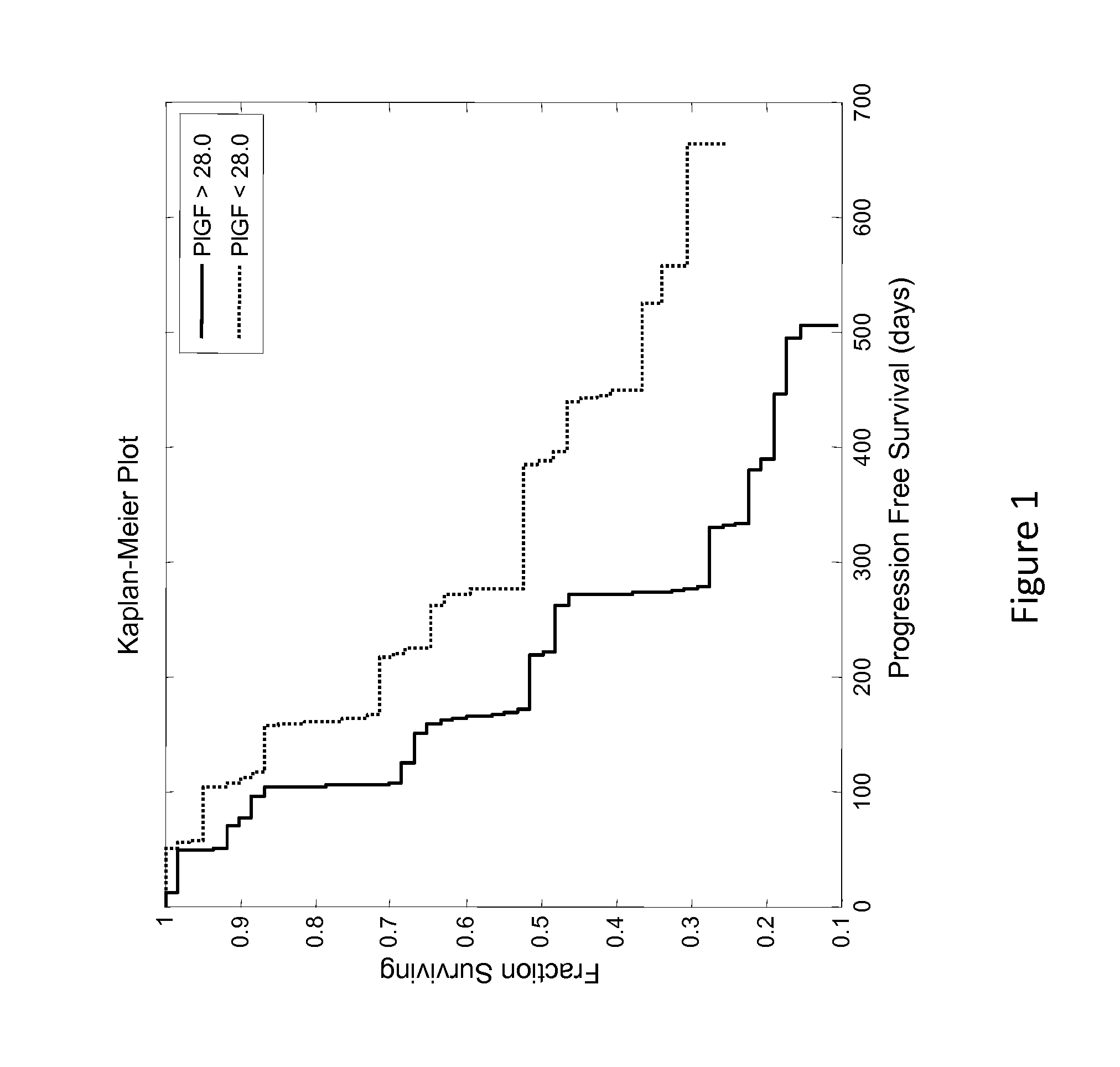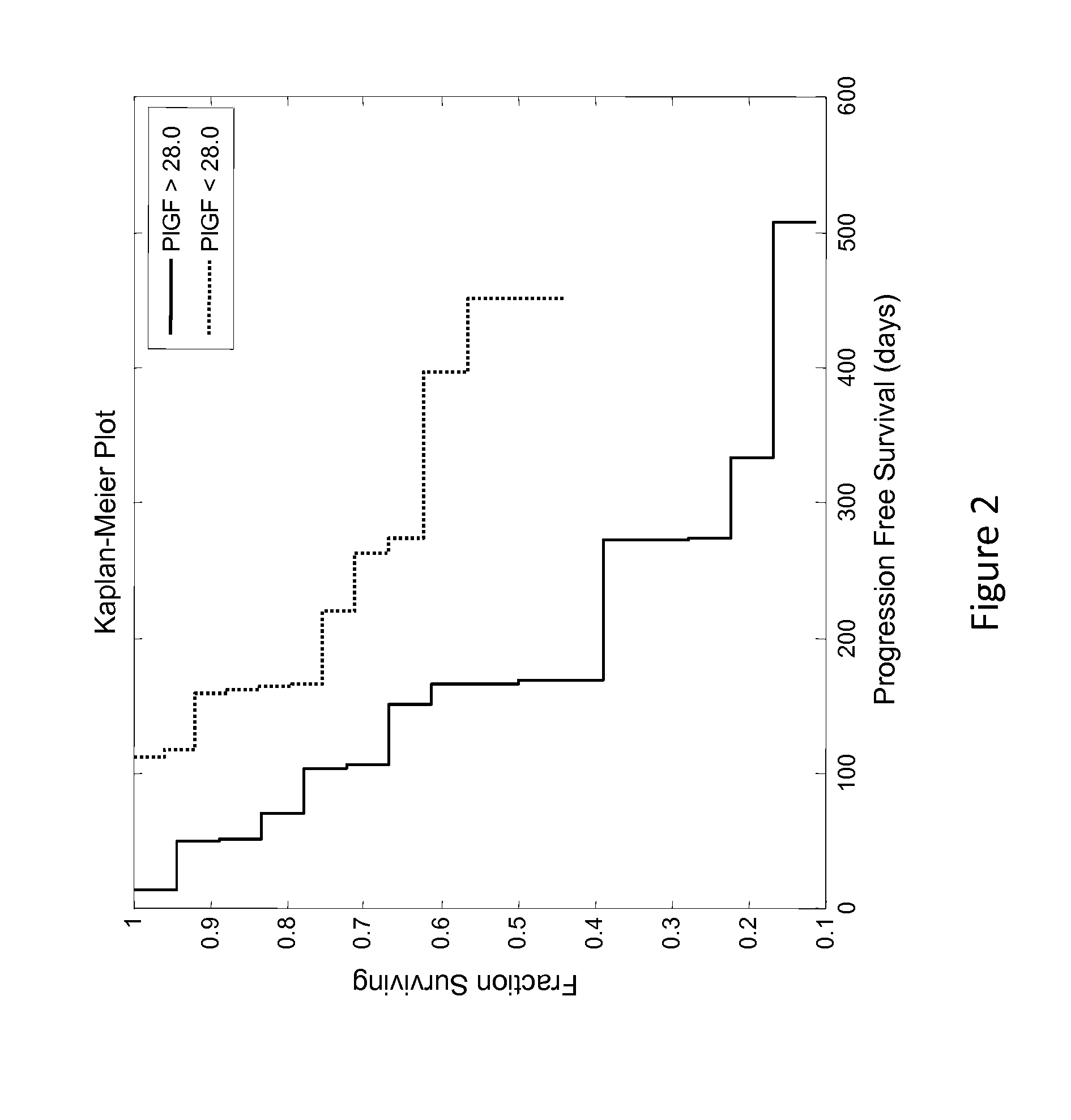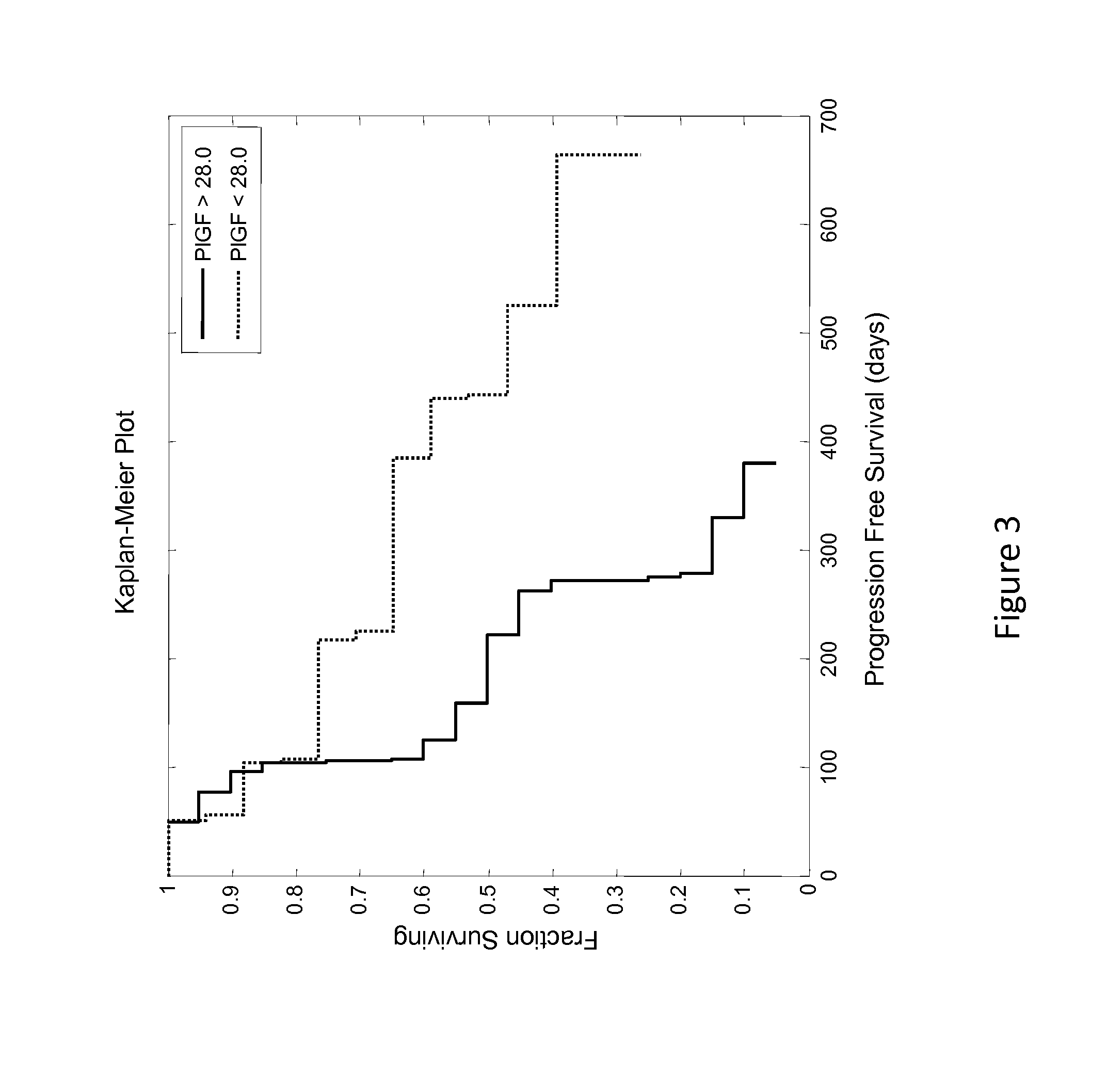Predictive biomarker of survival in the treatment of renal cell carcinoma
a renal cell carcinoma and biomarker technology, applied in the field of renal cell carcinoma predictive biomarker of survival, can solve the problem that the amount of required dose of difusion cannot be provided, and achieve the effect of increasing the progression-free survival ra
- Summary
- Abstract
- Description
- Claims
- Application Information
AI Technical Summary
Benefits of technology
Problems solved by technology
Method used
Image
Examples
example 2
[0108]This example describes an analysis of the relationship between patient PLGF concentration and PFS (progression free survival) of patients enrolled in the phase 2 study described in Example 1.
[0109]Renal cancer patient's circulating levels of protein placental growth factor (PLGF) was analyzed along with a number of other analytes to determine if it was predictive of how well they will respond after treatment with AMG 386 and sorafenib. In a clinical trial (Example 1), patients with renal cancer were treated with 400 mg BID (twice a day) sorafenib and either 10 mg / kg QW (once a week) AMG 386, 3 mg / kg QW AMG 386, or placebo AMG 386. Serum samples were collected prior to treatment (baseline) and used to measure circulating levels of the protein PLGF. The baseline patient PLGF concentration was analyzed to determine if it was informative of how well the patient would respond to the treatment regimens.
[0110]The patients PLGF concentrations were determined and tested for statistical...
PUM
| Property | Measurement | Unit |
|---|---|---|
| Concentration | aaaaa | aaaaa |
| Concentration | aaaaa | aaaaa |
| Concentration | aaaaa | aaaaa |
Abstract
Description
Claims
Application Information
 Login to View More
Login to View More - R&D
- Intellectual Property
- Life Sciences
- Materials
- Tech Scout
- Unparalleled Data Quality
- Higher Quality Content
- 60% Fewer Hallucinations
Browse by: Latest US Patents, China's latest patents, Technical Efficacy Thesaurus, Application Domain, Technology Topic, Popular Technical Reports.
© 2025 PatSnap. All rights reserved.Legal|Privacy policy|Modern Slavery Act Transparency Statement|Sitemap|About US| Contact US: help@patsnap.com



